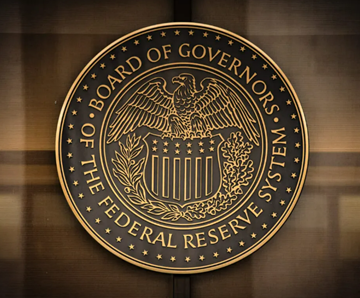Description

Disclaimer: Copyright infringement not intended.
Context
- The US Federal Reserve announced its fourth consecutive 75 basis point interest rate hike, which brought the benchmark federal funds rate to the range of 3.75% to 4%.
About US Fed
- The Federal Reserve System is the central bank of the United States. It performs five general functions to promote the effective operation of the U.S. economy and, more generally, the public interest. The Federal Reserve
- Conducts the nation’s monetary policyto promote maximum employment, stable prices, and moderate long-term interest rates in the U.S. economy;
- Promotes the stability of the financial systemand seeks to minimize and contain systemic risks through active monitoring and engagement in the U.S. and abroad;
- Promotes the safety and soundness of individual financial institutions and monitors their impact on the financial system as a whole;
- Fosters payment and settlement system safety and efficiencythrough services to the banking industry and the U.S. government that facilitate U.S.-dollar transactions and payments; and
- Promotes consumer protection and community developmentthrough consumer-focused supervision and examination, research and analysis of emerging consumer issues and trends, community economic development activities, and the administration of consumer laws and regulations.
The rate hikes by central banks across the world are not a new phenomenon. It is rather used regularly to either increase or decrease inflation. However, the concern here is the recent rate hike is at the highest level since early 2008 and it has been continuing for the last few months now.
Why the impact will be higher in emerging economies?
- As compared to 2008, the lending from US central bank has been eight times i.e., $8 million. This explains the higher inflation in not just the US but also European economies which are experiencing double-digit inflation.
- The world is on the brink of recession and there will be spill-over effects on the economies around the world.
How will this impact India?
- Due to collaborative efforts of the government and the Reserve Bank of India (RBI), India can control its inflation, fiscal deficit and current account deficit. However, the increase in global benchmark rates will increase the stress on investments in an emerging economy like India. As far as India is concerned, there are several ways in which it will impact:

Outflow of Foreign Currency
- With the US increasing its rate and coming closer to the Indian rate, the arbitrage which Foreign Portfolio Investors (FPI) were getting especially after borrowing from the US and investing in the Indian stock market, will now be not as attractiveas before. This will ensure that there would be an outflow of foreign currency from India and the investors will invest in US equities and US Federal Securities.
Pressure on the Currency
- Such outflow of currency or funds will further increase pressure on the currencyThe Indian rupee had already gone above Rs. 80 to one dollar.
Stock Market Downturn
- However, there will be a cushion for India as it is not globally integrated with the world market. Hence, the Indian stock market will witness a downturn but it will not be very drastic.
Reduction in Commodity Prices
- On the domestic front, the recession or slowdown in the global economy will also mean a lowering and reduction in commodity prices, particularly crude oil.
Volatile Equity Market
- The equity marketsin the country will go through a prolonged phase of volatility which will have nothing to do with the fundamentals of the corporate sector and also because India is dependent on the foreign flow of money which is assumed to go out.
Restrictive Investments
- The import of capital goodswill be under stress for India and will thus increase pressure on investments and there will be a restrictive investment in software and digital technologies, particularly Startups.
Other Stressed Sectors
- The corporate sector, the remittances and the tourism sector will also be under stress as they are dependent on the global economy.
Spillover Effects
- As compared to 2008, the lending from US central bank has been eight times.
- Developed world with higher living standards will be able to absorb this and will eventually bring down inflation. On the contrary, developing and emerging economies like India with low per capita income would not be able to absorb such inflationary shocks and will be impacted negatively in the fields of growth, employment, exports, etc.
- The spill-over takes place through different channels like trade, commodity prices, sentiments as well as capital flows. When it comes to commodity prices, one does not know how they're going to play out in different countries, with different demands. When it comes to sentiments globally, there's going to be a recessionary trend. So overall, the recessionary trend in most advanced countries of the world means nearly 60% of GDP is under the recessional trend.
Way Ahead
- It is time for multilateral institutions like the World Bank and the International Monetary Fund (IMF) to bring all the countries together to revive global economic growth by maintaining the level of employment in majorly advanced countries.
- The Geopolitics has impacted economies, which resulted in a slowdown or recession. This means the ammunition and defence industry globally has to play a responsible role.
- The Reserve Bank of India (RBI) though will have to increase benchmark rates and be more accommodating and kinder when it comes to the balance sheets of commercial banks and non-banking finance companies (NBFC).
- The bank managers need to adopt a more careful approach in extending to the corporate as well as the export sector.
https://indianexpress.com/article/explained/explained-economics/fed-hikes-rates-again-what-it-means-for-indian-markets-investors-8248244/
















